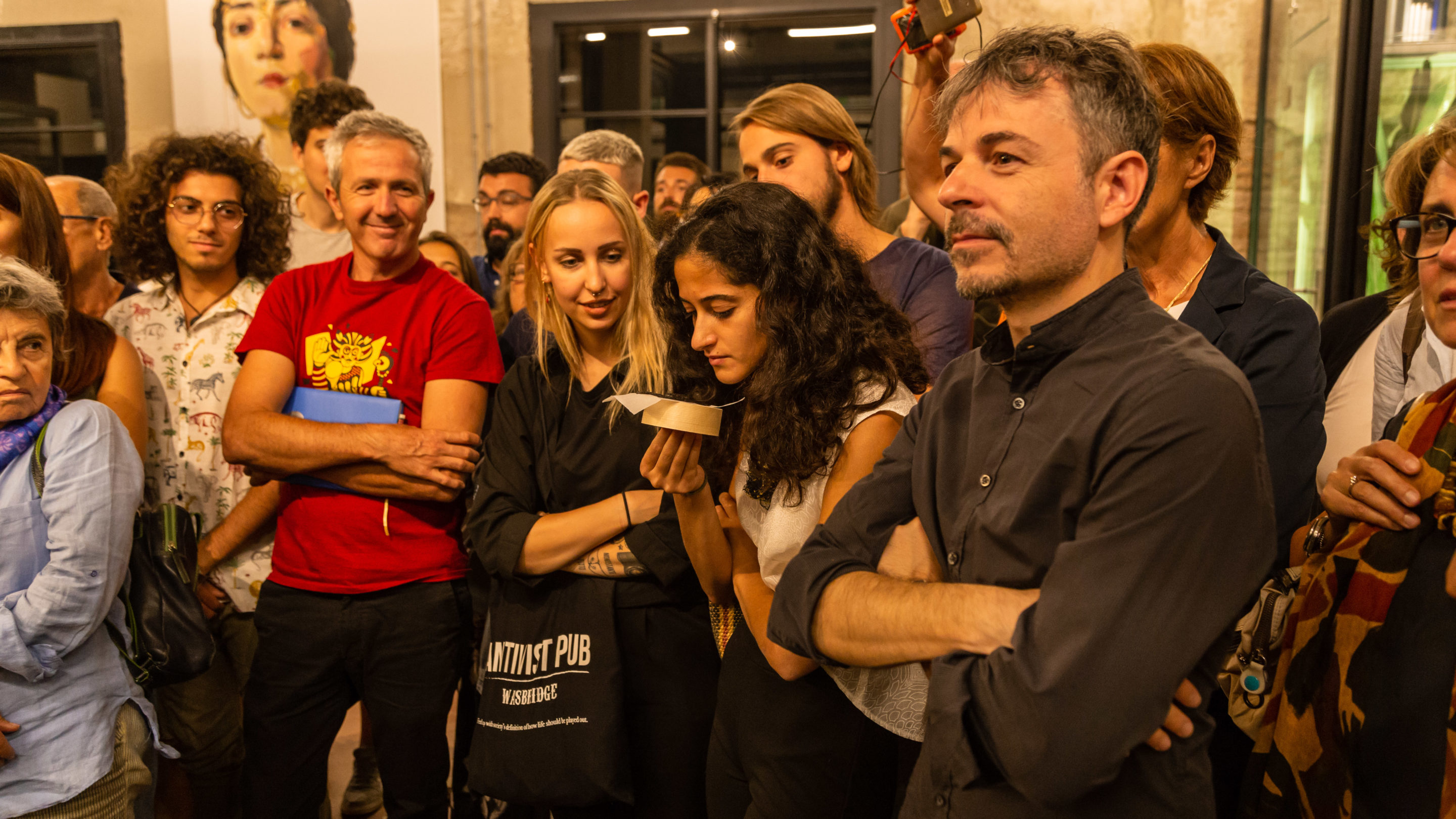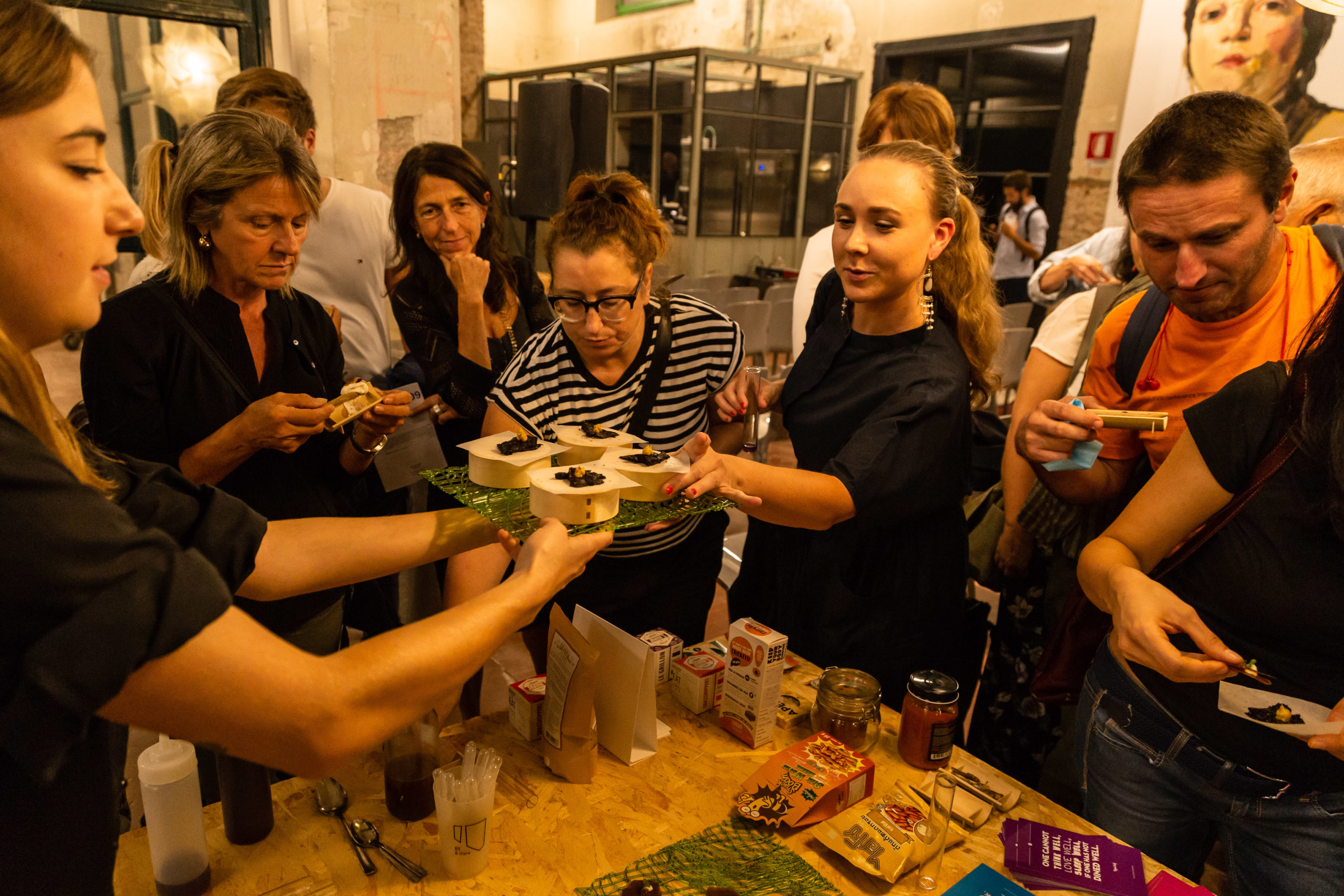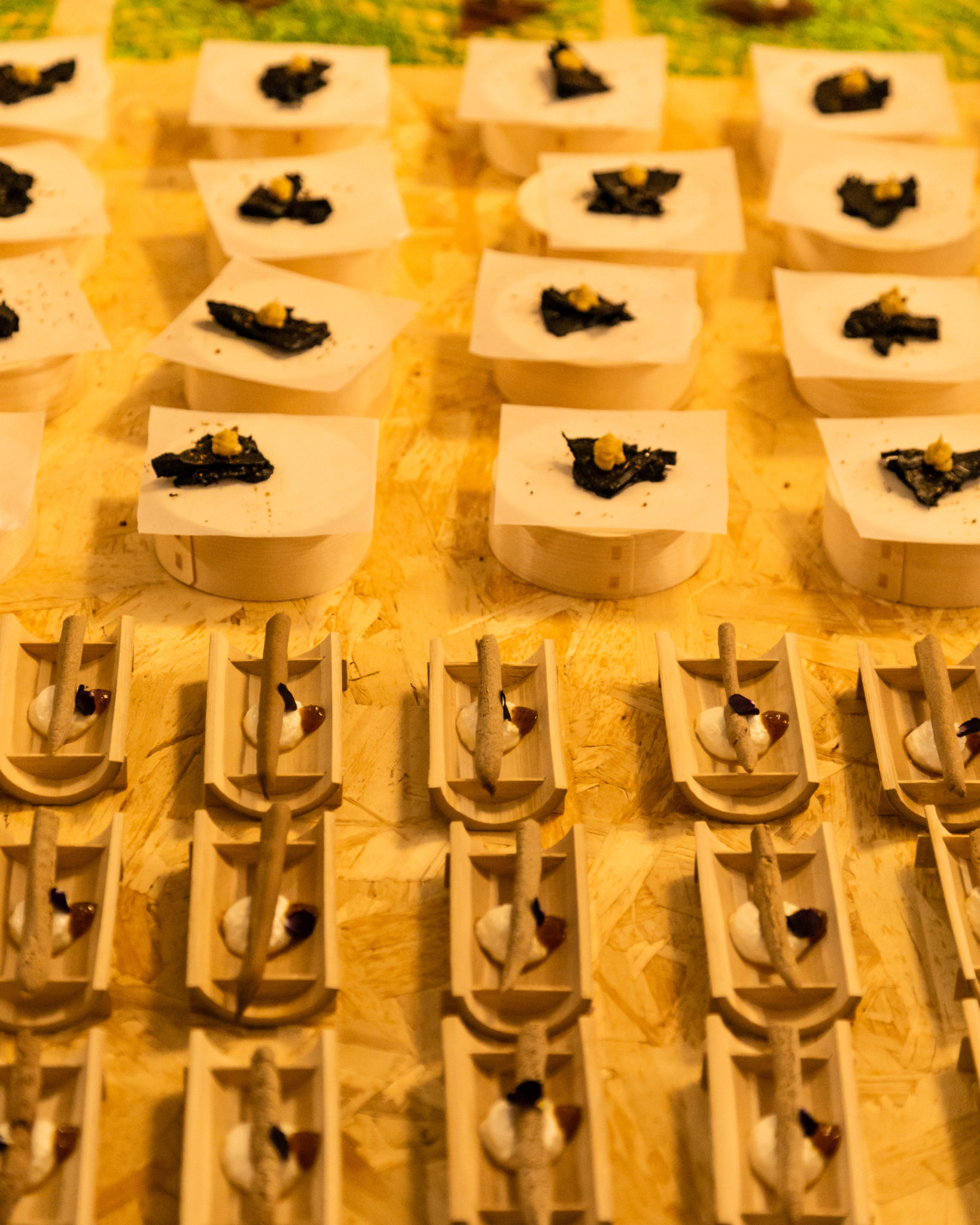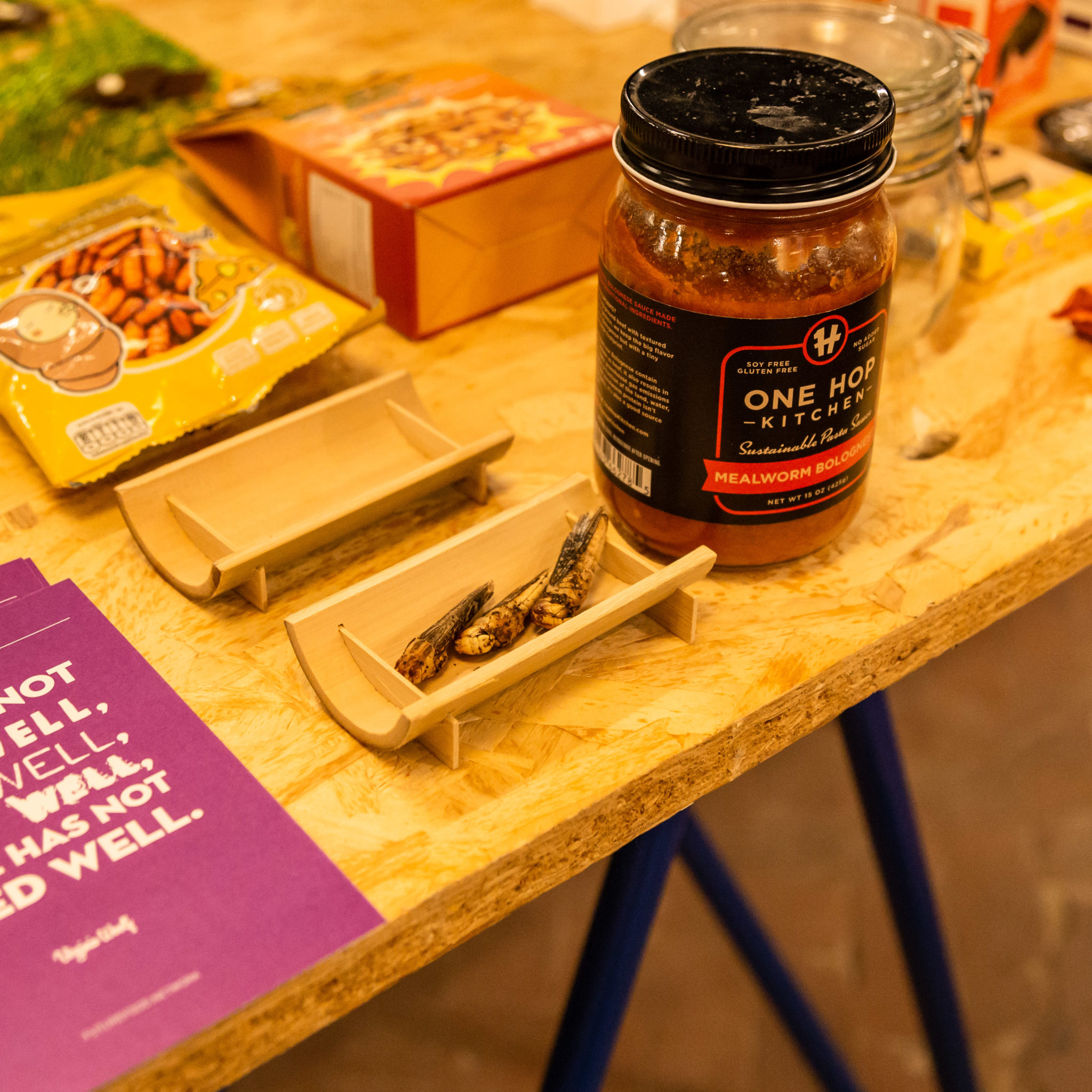Food of the Future and the Future of Food | God is Green talks
With Sara Roversi (founder of the Future Food Institute), Paola Bertocchi (Corporate Social Responsibility Manager at Gruppo Camst), and Pietro Ceciarini (BackBo).
See the full program
Protein, innovation and food security
What we eat and how we prepare it impacts on local sustainability, health and the environment. It is for this reason that the food sector, experts, innovators, agricultural producers and chefs are the leading figures for the changes that are necessary in confronting the threats posed by environmental catastrophes.
The talk took place as part of the God is Green festival and explored new frontiers and challenges in the world of food. New initiatives and older traditions come together to shape a new way of thinking about food and food waste.
The Future Food Institute is a non-profit organisation which carries out research and education in the field of food, and which collaborates with many other groups. It is headquartered in the beating heart of Bologna University and was set up with the help of a group of students. They have an area dedicated to Urban Farming, where they hold workshops for families and children in which the farmer grows food in an unconventional way. The Food alchemist area is a futuristic kitchen where the cook thinks of food as care, whilst also taking inspiration from older traditions such as fermentation.

Play video
“When we speak about the food of the future there’s a whole world of creativity that we can draw upon. Climate change is at the end of our fork!”
Sara Roversi
Food alchemist José De La Rosa, biologist and gastronomist, experiments with innovative methods in order to make use of food waste and find ways of not creating it in the first place. He is a ‘food maker’ who uses technological innovations and digital manufacturing processes to create new foods, printing them or regenerating them and transforming the packaging into something new.
Play video
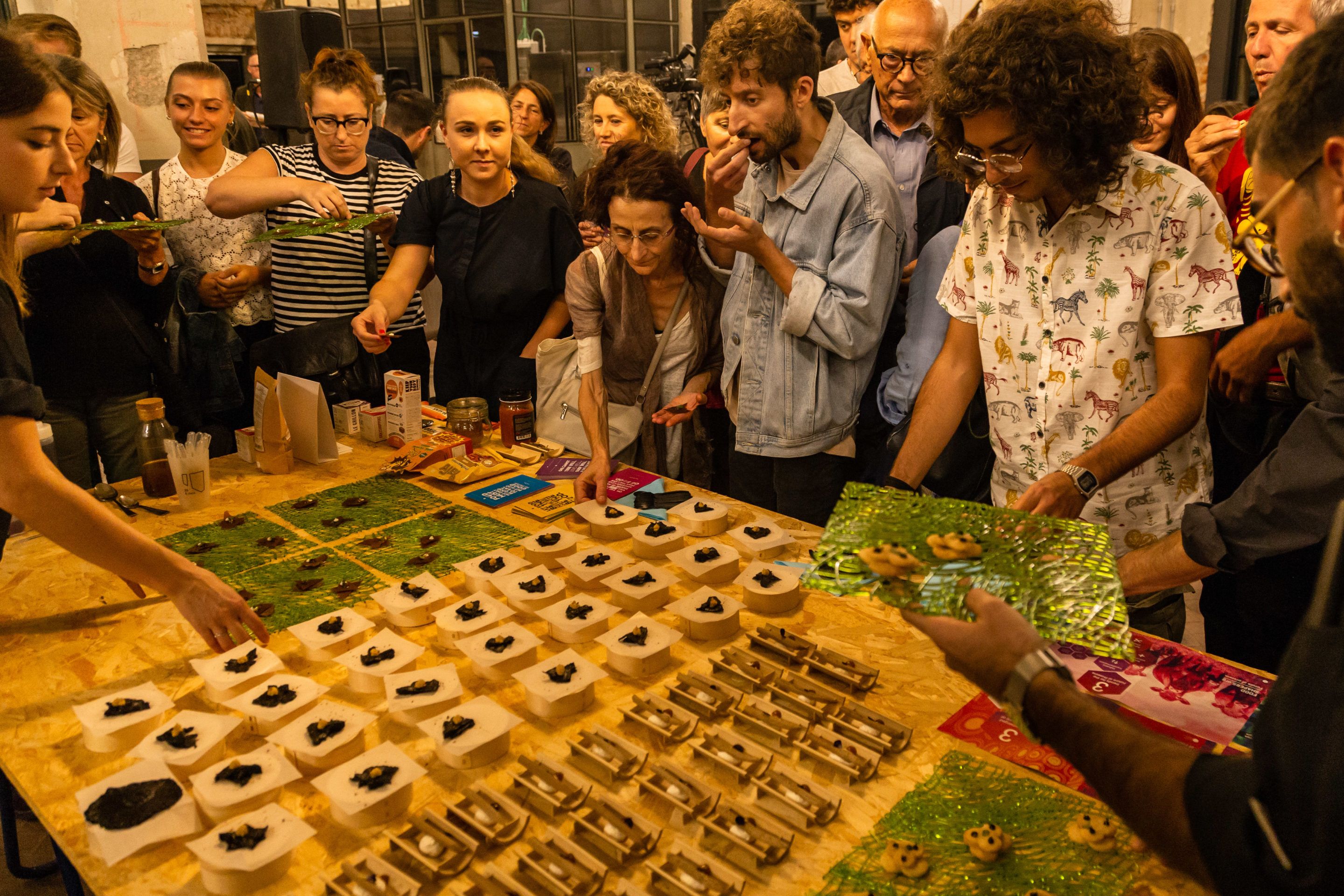
The Future Food Institute also hosts other groups and organisations in its laboratories, such as BackBo, a start-up founded by Pietro Ceciarini.
BackBo wanted to bring the idea of reusability back to the university area in Bologna in order to usher in a new atmosphere of economic, environmental and social sustainability. The project evolved into one of transforming a culture of use once and throw away into a culture of use and reuse. Italy is the third largest consumer of bottled water after Mexico and Thailand, countries in which the consumption is justified by problems with water sanitation. Italy is the fifth country in Europe in terms of the drinkability of its public water, all of which means we’re dealing with a strong cultural heritage, also to the general detriment of health.
“We want to raise awareness and make people understand that we should produce as little waste as possible because prevention is better than cure, but the cure in this case is also the means and so we need to raise awareness.”
Pietro Ceciarini
In the small BackBo laboratory, empty plastic containers are transformed into reusable objects, creating a sort of circular economy. BackBo also collaborates with events organisers, helping them find way of becoming zero waste. ‘Plastic free’ is not as sustainable as it might seem as bioplastics are often made from new raw materials rather than recycled, meaning they are still use once and throw away, and so are also pollutants. Plastic is not evil if it is reusable, as an example, using washable plastic glasses is still an intelligent choice. For this reason, Pietro Ceciarini’s start-up also offers a low-cost rental service providing reusable glasses for events organisers.
“Little gestures can have an enormous impact. The world of today needs them”
Pietro Ceciarini
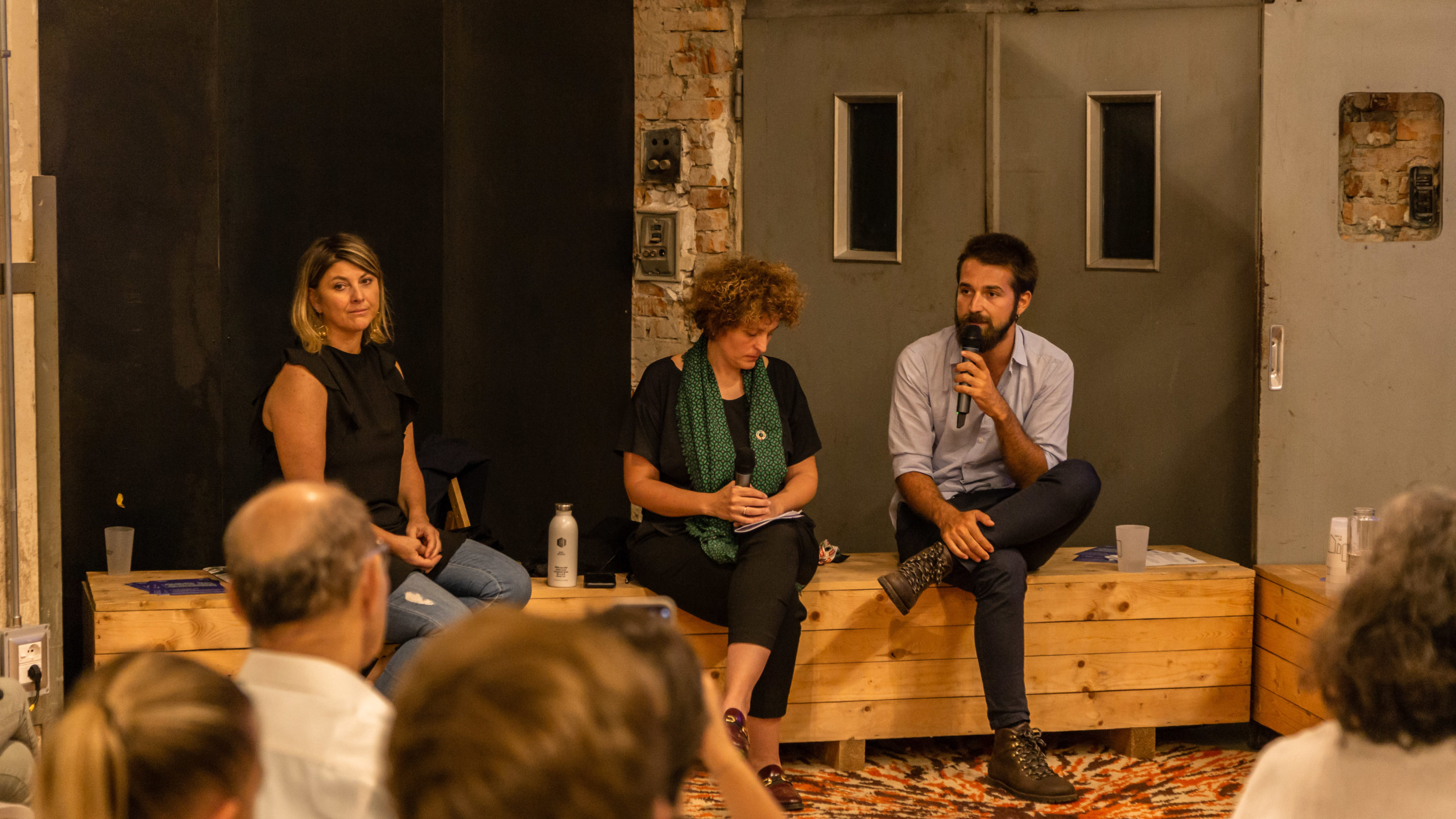
Climate change is a consequence of what we eat, anyone can make a change which has an impact on sustainability, as well as for their own health. The United Nations created a scheme that is intended to show the direction of travel: Sustainable Development Goals (SDGs) – 17 objectives that have become a point of reference for many organisations. Camst is one of the businesses using these goals in order to bring about change, doing many things behind the scenes that could act as a good example to other companies.
“There are many innovations that are taking place right outside our front door and often we know nothing about them.”
Sara Roversi

Camst is a catering company which operates in Italy and abroad. It has over 70 years of history and 15,000 employees. The company works in collective, corporate, hospital and school catering and manages numerous self-service restaurants. Camst decided to move from the annual social report to a ‘sustainability report’, to try to achieve year-on-year goals that are increasingly ambitious in terms of environmental protection.
Paola Bertocchi, Corporate Social Responsibility manager for the Camst Group, said that to reduce the consumption of water, which is very high in professional kitchens, a dry-cleaning system was adopted, also used in hospitals for cleaning operating theatres. The project started 2 years ago and is now active in 36 kitchens, saving 20 million litres of water every year, the equivalent of 8 Olympic sized swimming pools.
This new method of cleaning and sanitising has also improved working conditions and reduced the amount of work required in maintaining electrical appliances in the kitchens.
Another significant theme in modern discourse has been that of food waste, something which could be prevented through targeted food education projects, especially in schools where a lot of food is left over. Where sanitary regulations allow, Camst makes donations to food banks, Caritas, or last-minute markets to avoid wasting left over food.
At the same time, in order to recover food waste, new circular economy projects are about to start up. However, regulations must be carefully studied as even the most innovative ideas can violate the law.
“The idea is also to try to dream a little because what seems like a utopia today, might not be tomorrow.”
Paola Bertocchi
In order to bring about the large-scale changes required by society, we need to work together, sharing innovative ideas and disseminating technological discoveries made within companies. Dialogue for change was born from this presupposition of sharing and exchange, a project that has managed to get competitive companies, including Camst, around the same table and work with them to find new solutions.

“Innovation is something you do together. The challenges are so big that collaboration is no longer just an option: there’s no time left and even large companies are beginning to understand that this is the only way to change things.”
Sara Roversi
At the end of the talk, José De La Rosa, gastronomic biologist at the Food Alchemist Lab, presented some of the foods produced in the FFI laboratories accompanied by the insects of 21bites, the first European e-commerce dedicated to edible insects and superfoods. Definitely an eye-opening tasting session, especially as it turns out that grasshoppers are light, crunchy and taste a little bit like oregano.
José De La Rosa told how time is one of the methods that we hardly consider when we cook, but that instead is effective and sustainable, among the tastings there were pineapple and carrots cooked at about 50° for a week, accompanied by Miso, the traditional Japanese sauce made with fermented rice.
The biscuits and bread sticks served up were made with the residue of malt that settles when beer is made, once dried it is then turned into flour. The techniques that are being experimented with in the FFI laboratories are aimed at reusing, or not creating, food waste, using innovative techniques such as 3D printing, or traditional methods such as fermentation.

